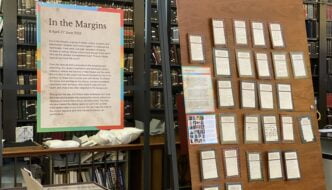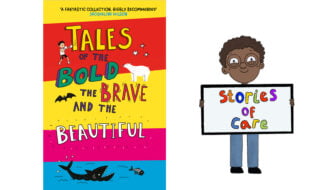
Photo by Polina Zimmerman from Pexels
Fiction has always been my friend. From the Judy Blume of my youth (yes, I will freely admit to underlining certain parts of ‘Forever’) to the Jackie Collins obsession of my teenage years and the extraordinary female writers I discovered in adult life – Maya Angelou, Margaret Atwood, Chimamanda Ngozi Adichie, Helen Walsh, Sally Rooney to name just a handful. On holidays I devour books, and in turbulent times, novels have offered more than escapism – they’ve been a lifeline.
According to Helen Taylor, author of ‘Why Women Read Fiction’ this ‘literary soundscape’ is a unique and treasured aspect of many women’s experience; it is the literary equivalent to the soundtrack of our lives. Taylor makes a convincing case that not only do women have a special relationship with fiction, but their continued engagement is crucial for its survival.
Taylor was speaking on the opening night of the Leeds Literature Festival at a session put on by MiliM, a Jewish literature festival running concurrently throughout March. In a packed room in the recently renovated Leeds Playhouse, the talk began with a quote from Ian McEwan. “When women stop reading, the novel will be dead.” As you’d imagine, it went down extremely well with the overwhelmingly female audience.
In her soothing tone of voice, Taylor warmly shared anecdotes and findings from her book in which she compiles conversations and correspondence with more than 500 female writers and readers. Some of the facts were not surprising, others were staggering. It’s women who keep the novel market in the UK afloat, with female readers outnumbering men in all genres, except fantasy, sci-fi and horror. The fact that Mills and Boon sells a new book every 5 seconds in the UK is pretty mind-blowing. And forget ‘The Handmaid’s Tale’ – the top three best-selling books of the last decade were ‘Fifty Shades of Grey’, and the sequels; ‘Fifty Shades Darker’ and ‘Fifty Shades Freed’.
Although there were a few sniggers from the floor at this one, Taylor argues that romantic fiction is changing to suit the needs and experiences of a contemporary readership. My feminist principles bristled slightly at the idea that such novels give women a platform and a voice. However, there’s certainly some interesting debates to be had about the portrayal of women in romantic fiction and the label ‘chick lit’. As Taylor pointed out, there is no male equivalent to the term. And male authors are seldom asked how they fit writing around childcare.
She also points out that since 2010 a fifth of public libraries have closed, and that this demise could be detrimental. Women gravitate more to communities of reading and are much more likely to share books, talk about books and participate in book groups. Missing from her discussion was how this sense of shared reading will evolve for younger generations of female readers. With social media and smart technologies, what will be the impact on what is read, how it’s read and how women discuss literature in the future?
A thought-provoking evening which threw up so many questions that the opportunities for spin-off books on the subject seem plenty. Judging by the murmurings of appreciation and the warm welcome from the audience, Helen Taylor, the Literature Festival and organisers MiliM pretty much hit the mark.




Comments